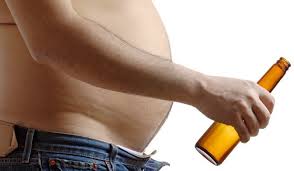Alcohol consumption consequences and hidden facts
Alcohol consumption consequences and hidden facts: Alcohol addiction

Getting the facts right about alcohol consumption is a must for everyone whether you are directly or indirectly affected because we all have a duty to perform in the eradication of alcohol abuse
Different state across the globe has put certain parameters aimed at controlling the consumption of alcohol. With all these efforts the rate at which alcohol is being consumed is worrying ad so we ask are these parameters working. Is there a need of doing more? To answer that questions we want to narrow down the discussion to getting the truth about Alcohol consumption consequences and hidden facts, and with the help of professionals from AWAREmed Health and Wellness Resource Center, we are going to reveal certain facts which you really don’t want to miss. I want therefore request you to stay with us on the link because doctor Dalal Akoury MD, President and founder of AWAREmed Health and Wellness Resource Center is up to the task having practiced in this discipline for over two decades, she will be able to address all your concerns professionally. You can therefore seek for more professional information about alcohol consumption direct from the experts by scheduling for an appointment with doctor Dalal Akoury even as we progress into the discussion.
And just like we have mentioned it is no secrete anymore that everyone is well informed of the legal drinking age throughout the globe. And in the United States where most of our references are going to made as we build on this discussion the acceptable drinking age is at a minimum of 21. That is the government ceiling however and according to the National Center on Addiction and Substance Abuse, it is shocking and sincerely regrettable that almost up to 80% of our young high school students have at least tried alcohol. The rules have not been effective in keeping the teens to testing the waters with alcohol. And since the decision as whether to drink is a personal decision that we each eventually have to make, many young people have found themselves drinking out of peer pressure and fear of being left out. The sense of belonging and fitting in has not worked well for our teen more so when it comes to the consumption of alcohol and drug abuse. It is because of such that we have prioritized on this article to provide some information on alcohol, including but not limited to how it affects your body so that you can make an educated choice in your life about the consumption of alcohol. Now what exactly is alcohol to you? Let’s find out from the experts at AWAREmed Health and Wellness Resource Center under the able leadership of doctor Dalal Akoury.
Alcohol consumption consequences and hidden facts: What is alcohol?
The production process of alcohol is funny and interesting. It is actually created when certain grains, fruits, or vegetables are fermented through a process known as the fermentation. This is a process that that involves the usage of yeast or bacteria to transform the sugars in the food into alcohol. Doctor Akoury is registering that the process of fermentation is one that is used to produce many necessary items including everything from cheese to medications. Alcohol is actually produced in different forms and can serve or be used in different multiple ways including being used as a cleaner, an antiseptic, or a sedative. And that brings us to our next focal point which is “if alcohol is a natural product, why then do teens need to be concerned about it is consumption? Professionally doctor Akoury explains that when people drink alcohol, it’s absorbed into their bloodstream. From there, it affects the central nervous system which includes the brain and spinal cord, which controls virtually all body functions. At the moment a lot of studies are being conducted more so with regards to the teens alcohol consumption. And with the knowledge that the human brain is still developing during our teens growth and development, scientists are researching are working around the clock to establish the effects and consequences of drinking alcohol can have on the teen brain. We will be responding on that as it develops from time to time so this is the place to be for all the health information you need to have about alcohol consumption.
Alcohol consumption consequences and hidden facts: How does it affect the body?
I am certain that it will not pass your conscience that alcohol is a depressant, which means that it slows down the function of the central nervous system and essentially affecting the whole body operations. How does it succeed in this? According to the experts from AWAREmed Health and Wellness Resource Center, Alcohol actually blocks some of the messages trying to get to the brain. When this happens, alcohol will alters a person’s perceptions, emotions, movement, vision, and hearing thereby rendering the victim totally incapacitated to function normally.
One reason why people often get into drinking is because of the passive benefits of its consumption, like for instance it is believed that when alcohol is consumed in very small amounts, it can help a person feel more relaxed or less anxious. However any consumption of alcohol above normal will certainly cause greater changes in the brain, resulting in intoxication. People who have overused alcohol may stagger, lose their coordination, and slur their speech. They will probably be confused and disoriented. Depending on the person, intoxication can make someone very friendly and talkative or very aggressive and angry. Reaction times are slowed dramatically and that explains why people are often advised not to drink and drive. This is because when under the influence of alcohol also known as intoxication, such individuals may think that they’re moving properly when they’re not. They may act totally out of character.
When large amounts of alcohol are consumed in a short period of time, what is commonly referred to us alcohol poisoning may occur. Alcohol poisoning is exactly what it sounds like, that is to say that the body has become poisoned by large amounts of alcohol. There are several indicators of this but normally the first one will be violent vomiting. When this goes to the extreme, experiences like extreme sleepiness, unconsciousness, difficulty in breathing, dangerously low blood sugar, seizures and sometimes even death may result. These feelings are realistic and are no fix ion, therefore the sooner you chose life the better for you and your whole family and the society as a whole.
Alcohol consumption consequences and hidden facts: Why do teens drink?
Experimentation with alcohol during the teen years is common. Some reasons that teens use alcohol and other drugs may also include: curiosity, to feel good, reduce stress, and relax and the sense of belonging also referred to us fitting in. Finally doctor Akoury say that owing to the content about alcohol in the media very young kids see advertising messages showing beautiful people enjoying life giving the impression that for one to enjoy life alcohol has a role to play. And because many parents use alcohol like beer or wine at dinner time children often feel that alcohol seems harmless and so they get motivated to try. Is that what you want for your kids?
Alcohol consumption consequences and hidden facts: Alcohol addiction



